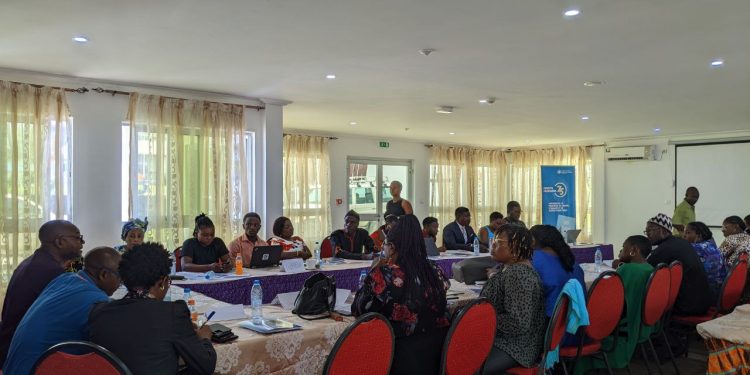Civil Society Organizations (CSOs) from the North West and South West Regions of Cameroon have concluded a two-day workshop aimed at developing an action plan to curb human rights violations in the country.
Organized under the auspices of the United Nations Centre for Human Rights South Africa, the workshop focused on assessing feedback from the Human Rights 75 initiative, which took place on July 14th, 2023.
During the workshop, CSOs reviewed the pledges made during the Human Rights 75 initiative and formulated an action plan to monitor and support the implementation of these pledges.
The primary objective of the action plan is to promote a peaceful and non-violent community through strategic interventions.
One of the key interventions outlined in the action plan is the review of Cameroon’s laws on torture, particularly in the North West, South West, and Northern regions, where cases of torture have been reported.
Fonyuy Kiven, Human Rights Officer for UN Human Rights Central Africa, emphasized that these actions are aimed at supporting the government in implementing the pledges made during the Human Rights 75 initiative.
“The actions are not additional pledges or some new recommendations. The actions are what we will do as CSOs to ensure that we support Government to implement these pledges and to ensure that we monitor and we follow up the implementation of these pledges by the government,” Kiven said.
Speaking to MMI, Beatrice, the CEO, and founder of Women’s Guild for Empowerment and Development, highlighted the importance of the six-point action plan.
She emphasized that while these actions cannot be implemented overnight, CSOs have committed to a four-year plan, which includes regular retreats and meetings to strategize and collaborate with the government efficiently.
“These two days have been very important for us as human rights advocates because it gives us insight into the work we have been doing in the community,” said Beatrice.
“We are strategizing to work in partnership with many other CSOs and essentially to work with the government in policy implementation on the rights and responsibilities of human beings, gender-inclusive, and involving everybody.”
In addition to discussions held during the workshop, Josephine Nsono, founder of the PEARL Foundation, highlighted the importance of collaboration among organizations interested in the Maputo Protocol.
She emphasized the need to harness resources effectively and capitalize on collaboration to address human rights issues comprehensively.
The workshop follows a thematic round-table discussion organized by the Centre on July 14th, 2023, in Buea, South West region.
The round-table aimed to appraise existing peace promotion initiatives, document key actions for improving early warning and response functions, build a community of exchange and practice on early warning and response, and generate and support renewed commitments and pledges for human rights.
The CSOs’ action plans signify a commitment to addressing human rights violations in Cameroon and working collaboratively with the government and other stakeholders to ensure the protection and promotion of human rights across the country.



